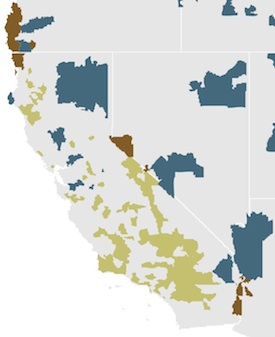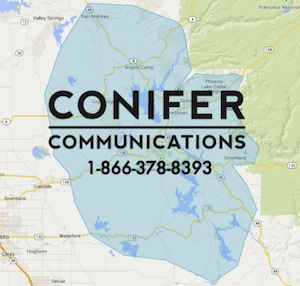California edges closer to full pole and conduit access for ISPs
![By Anneli Salo (Own work) [CC BY-SA 3.0 (https://creativecommons.org/licenses/by-sa/3.0)], via Wikimedia Commons](https://www.tellusventure.com/images/2015/5/limbo_dancing.jpg)
In two separate, unanimous decisions yesterday, the California Public Utilities Commission narrowed the privilege gap between pure Internet service providers and traditional telephone and cable companies, at least concerning access to utility poles, conduits and other facilities and right of ways.
In one decision, the CPUC handed Google Fiber a victory by ruling that a company that has a state franchise to deliver television service over any kind of cable or wire (but not wirelessly) is a “cable television corporation” under California law and can ask for equal access to utility poles…
… MoreA state-franchised that transmits television programs by cable to subscribers for a fee is a “cable television corporation” as defined by [California’s public utility laws].




![Andy F [CC BY-SA 2.0 (https://creativecommons.org/licenses/by-sa/2.0)], via Wikimedia Commons](https://www.tellusventure.com/images/2015/4/tug_o_war.jpg)
![By Super Rad! (Own work) [CC BY-SA 3.0 (https://creativecommons.org/licenses/by-sa/3.0)], via Wikimedia Commons](https://www.tellusventure.com/images/2015/4/tacoma_skyline.jpg)


![By H005 (Own work) [Public domain], via Wikimedia Commons](https://www.tellusventure.com/images/2015/4/recycle.jpg)
